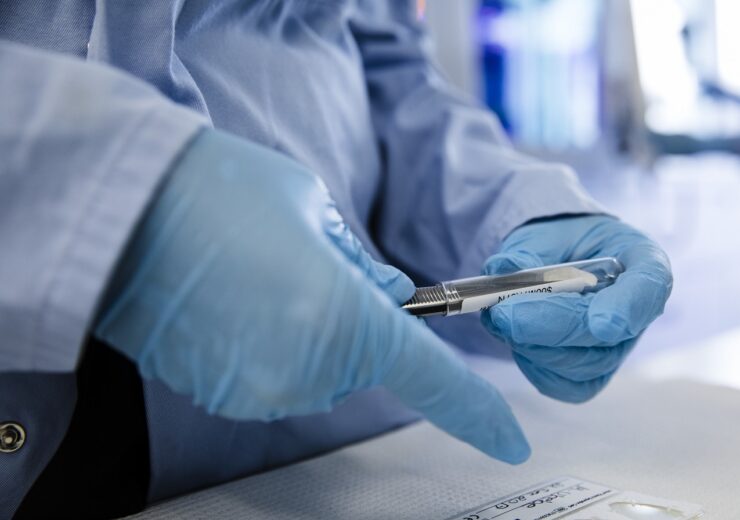Roche and Lilly will jointly support the development of Roche Diagnostics’ Elecsys Amyloid Plasma Panel that enables early diagnosis of Alzheimer’s disease (AD), based on elevations in pTau181 levels

Roche, Lilly collaborate on early diagnosis of AD. (Credit: F. Hoffmann-La Roche Ltd)
Swiss healthcare company Roche has teamed up with US-based pharmaceutical company Eli Lilly and Company (Lilly) to support the development of its Elecsys Amyloid Plasma Panel (EAPP).
EAPP is a blood test that measures phosphorylated Tau (pTau) 181 protein assay and apolipoprotein (APOE) E4 assay in human blood plasma.
The test enables early diagnosis of Alzheimer’s disease (AD), based on elevations in pTau181 levels, which indicates early disease, and the presence of APOE4 a common genetic risk factor.
Its results are considered together with other clinical information, and a further confirmatory test with amyloid positron emission tomography (PET) or cerebrospinal fluid (CSF) is advised.
Under the collaboration, Roche and Lilly plan to commence a two-year clinical trial with hundreds of volunteers, to procure regulatory approval in the US, reported Reuters.
Roche will recruit hundreds of volunteers with early signs of dementia in the coming 18 to 24 months, with plans to submit a regulatory filing in 2025.
If approved, EAPP test would help identify amyloid pathology in symptomatic patients and determine, whether they require further evaluation to confirm the diagnosis.
Roche Diagnostics CEO Matt Sause said: “We are excited to be collaborating with Lilly on such an important area of unmet medical need.
“Today, over 55 million people are living with dementia and this is projected to increase to nearly 140 million by 20502. Collaboration is essential to ensure these people receive a timely and accurate diagnosis.
“The Elecsys Amyloid Plasma Panel has the potential to streamline a person’s journey to diagnosis and, therefore, access to future treatment options.”
According to Roche, early and accurate diagnosis of AD exists, but up to 75% of people living with the symptoms of AD are not diagnosed.
The faster and more accessible diagnosis of AD will enable access to appropriate new therapies as they become available, said the company.
In July last year, Roche received the US Food and Drug Administration (FDA) Breakthrough Device Designation for EAPP.
In December, the company received FDA approval for its Elecsys beta-Amyloid (1-42) CSF II (Abeta42) and Elecsys Phospho-Tau (181P) CSF (pTau181) assays.
Lilly group vice president, Avid Radiopharmaceuticals Neuroscience R&D and president Mark Mintun said: “We are pleased to be joining Roche to support the development of yet another potential diagnostic tool.
“We look forward to the robust data and continued collaboration across the field that will be critical to accelerate the ecosystem to aid in a timely and accurate diagnosis of Alzheimer’s.”
